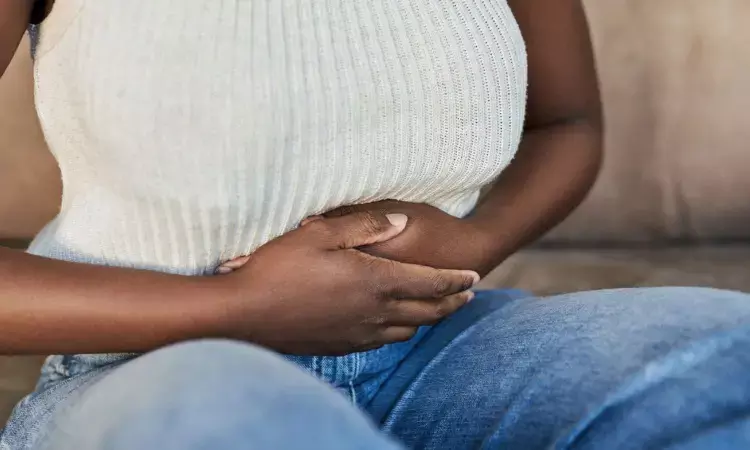- Home
- Medical news & Guidelines
- Anesthesiology
- Cardiology and CTVS
- Critical Care
- Dentistry
- Dermatology
- Diabetes and Endocrinology
- ENT
- Gastroenterology
- Medicine
- Nephrology
- Neurology
- Obstretics-Gynaecology
- Oncology
- Ophthalmology
- Orthopaedics
- Pediatrics-Neonatology
- Psychiatry
- Pulmonology
- Radiology
- Surgery
- Urology
- Laboratory Medicine
- Diet
- Nursing
- Paramedical
- Physiotherapy
- Health news
- Fact Check
- Bone Health Fact Check
- Brain Health Fact Check
- Cancer Related Fact Check
- Child Care Fact Check
- Dental and oral health fact check
- Diabetes and metabolic health fact check
- Diet and Nutrition Fact Check
- Eye and ENT Care Fact Check
- Fitness fact check
- Gut health fact check
- Heart health fact check
- Kidney health fact check
- Medical education fact check
- Men's health fact check
- Respiratory fact check
- Skin and hair care fact check
- Vaccine and Immunization fact check
- Women's health fact check
- AYUSH
- State News
- Andaman and Nicobar Islands
- Andhra Pradesh
- Arunachal Pradesh
- Assam
- Bihar
- Chandigarh
- Chattisgarh
- Dadra and Nagar Haveli
- Daman and Diu
- Delhi
- Goa
- Gujarat
- Haryana
- Himachal Pradesh
- Jammu & Kashmir
- Jharkhand
- Karnataka
- Kerala
- Ladakh
- Lakshadweep
- Madhya Pradesh
- Maharashtra
- Manipur
- Meghalaya
- Mizoram
- Nagaland
- Odisha
- Puducherry
- Punjab
- Rajasthan
- Sikkim
- Tamil Nadu
- Telangana
- Tripura
- Uttar Pradesh
- Uttrakhand
- West Bengal
- Medical Education
- Industry
Vedolizumab effective for inducing remission in patients with chronic pouchitis: Phase 4 trial

UK: In patients with ulcerative colitis who undergo colectomy, restorative proctocolectomy with ileal pouch-anal anastomosis (IPAA) is routinely performed. Pouchitis, idiopathic inflammation of the pouch, is the most common long-term complication of IPAA; about half of the patients develop pouchitis within five years after undergoing IPAA, and it recurs in more than 50% of affected patients.
A phase 4, double-blind, randomized trial evaluated vedolizumab in adult patients in whom chronic pouchitis developed after undergoing IPAA for ulcerative colitis and found vedolizumab treatment to be more effective than placebo in inducing remission in these patients.
The study, featured in the New England Journal of Medicine, found that for patients with chronic pouchitis, vedolizumab was more effective than placebo concerning the primary endpoint of mPDAI-defined remission at week 14, with a 21 percentage-point difference between the groups in the percentage of patients with remission.
Pouchitis is characterized by abdominal pain, increased stool frequency, and poor quality of life. The PDAI (Pouchitis Disease Activity Index) is an established scoring system for pouchitis evaluation based on clinical symptoms, histologic findings, and endoscopic findings. The mPDAI (modified PDAI) omits histologic assessment components yet has specificity and sensitivity the same as that of the full scoring system.
Short-term courses of antibiotic agents are usually used for treating acute pouchitis; however, chronic pouchitis, defined by symptom duration of more than four weeks, occurs in about one-fifth of patients. Retrospective, uncontrolled studies have suggested that tumour necrosis factor antagonists, ustekinumab or vedolizumab, may effectively treat pouchitis refractory to antibiotics. However, the authors noted that none of these treatments were approved in the United States or Europe during this trial.
Patients were assigned in a ratio of 1:1 to receive intravenous vedolizumab at a dose of 300 mg or placebo on day one and at weeks 2, 6, 14, 22, and 30. From weeks 1 to 4, all the patients received concomitant ciprofloxacin.
The mPDAI is based on endoscopic findings and clinical symptoms. The primary endpoint was mPDAI-defined remission at week 14, an mPDAI score of ≤4, and a decrease from baseline of ≥2 points in the mPDAI total score; scores range from 0 to 12, with higher scores suggesting more severe pouchitis. Other efficacy endpoints were mPDAI-defined remission at week 34, PDAI-defined remission at weeks 14 and 34, and mPDAI-defined response at weeks 14 and 34.
The mPDAI-defined response is a reduction from a baseline of ≥2 points in the mPDAI score; PDAI-defined remission is a PDAI score of ≤6 and a decline from a baseline≥3 points; scores vary from 0 to 18, with higher scores reflecting more severe pouchitis.
The study led to the following findings:
· Among the 102 patients who underwent randomization, the incidence of mPDAI-defined remission at week 14 was 31% with vedolizumab and 10% with placebo (difference, 21 percentage points).
· Differences in favour of vedolizumab over placebo were also seen concerning mPDAI-defined remission at week 34 (difference, 17 percentage points), a mPDAI-defined response at week 14 (difference, 30 percentage points) and week 34 (difference, 22 percentage points), and PDAI-defined remission at week 14 (difference, 25 percentage points) and week 34 (difference, 19 percentage points).
· In the vedolizumab group, serious adverse events occurred in 6% of patients and 8% in the placebo group.
"Vedolizumab treatment was more effective than placebo in the induction of remission among patients who had chronic pouchitis after undergoing ileal pouch–anal anastomosis for ulcerative colitis," the authors concluded.
Reference:
The study, "Vedolizumab for the Treatment of Chronic Pouchitis," was published in the New England Journal of Medicine. DOI: 10.1056/NEJMoa2208450
Dr Kamal Kant Kohli-MBBS, DTCD- a chest specialist with more than 30 years of practice and a flair for writing clinical articles, Dr Kamal Kant Kohli joined Medical Dialogues as a Chief Editor of Medical News. Besides writing articles, as an editor, he proofreads and verifies all the medical content published on Medical Dialogues including those coming from journals, studies,medical conferences,guidelines etc. Email: drkohli@medicaldialogues.in. Contact no. 011-43720751


